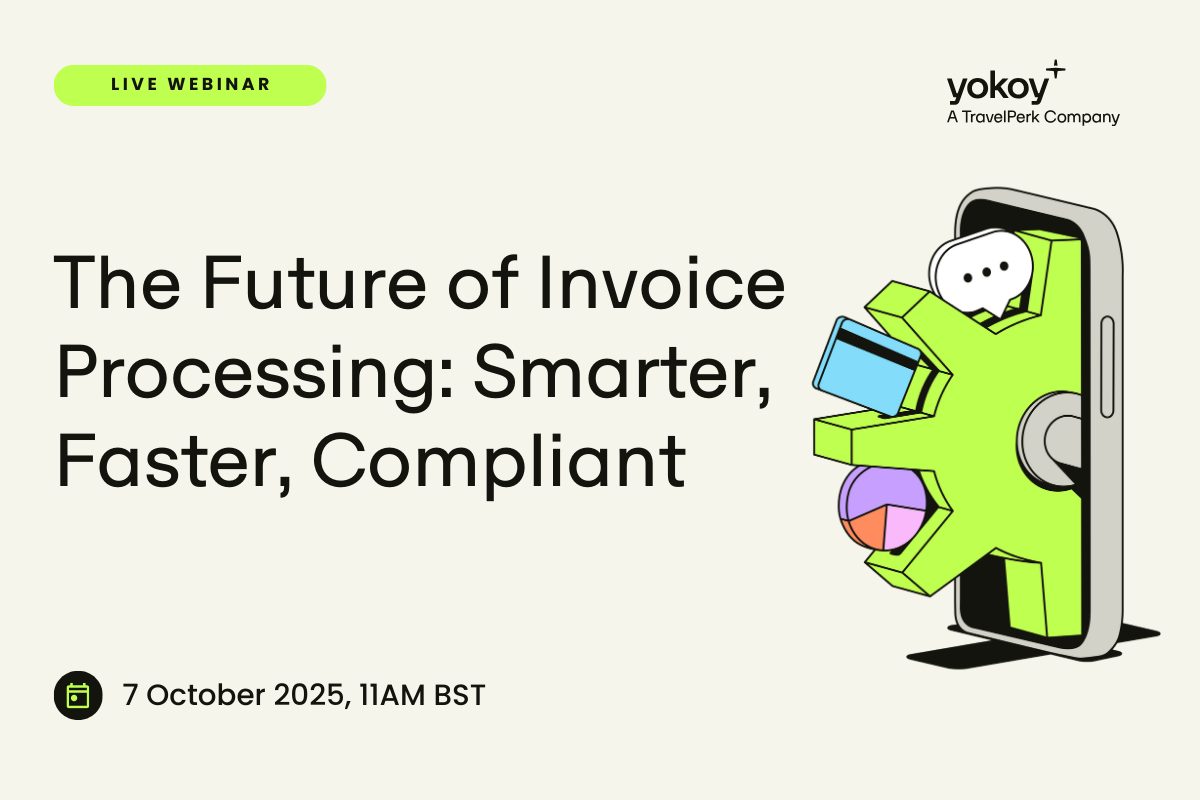Home / Mitigating Accounts Payable Fraud — Your Guide
Mitigating Accounts Payable Fraud — Your Guide
- Last updated:
- Blog

Accounts payable (AP) fraud remains a widespread threat to everyone from small businesses to bigger corporations. The 2021 AFP® Payments Fraud and Control Survey Report indicates that nearly 71 per cent of businesses encountered AP fraud in 2021. The severity of this issue is underscored by the Association of Certified Fraud Examiners (ACFE) 2022 study, which found a median loss of nearly £1.4 million per fraud case, equivalent to 5 per cent of annual revenue, often due to inadequate internal controls. Despite these challenges, AI and accounts payable automation offer promising solutions to combat AP fraud effectively.
These technologies automate compliance checks, streamline invoice processing, and optimise audit capabilities, reducing risks and enhancing operational efficiency.
With advanced AI-powered solutions your company can fortify AP processes and bolster security measures, minimise the risk of fraud, enhance accuracy, and ensure adherence to regulatory standards.
Different types of fraud
With fraud perpetrated by vendors, customers, or organised crime groups, your business is always exposed to considerable but not unmanageable risk. Understanding the various types of fraud is essential for implementing effective safeguards. Let’s look in-depth at some of the most common payable fraud schemes.
1. Billing schemes
Billing schemes involve manipulative actions by external parties to exploit a company’s invoicing and payment processes for unauthorised financial gain.
How they work:
Fictitious vendors: Fraudsters create bogus entities and submit invoices for goods or services never provided.
Overbilling: Legitimate vendors inflate their invoices or charge for unperformed services.
Price padding: Vendors overcharge for goods or services, often justifying the inflated costs to avoid suspicion.
2. Invoice fraud
False invoicing involves submitting fraudulent invoices to deceive a company into making payments for non-existent goods or services.
How they work:
Fake companies: Fraudsters set up shell companies and send fake invoices that appear legitimate.
Identity theft: Scammers impersonate real vendors and submit invoices with altered payment details.
Payment diversion: Genuine invoices are intercepted and modified to redirect fraudulent payments to accounts.
3. Duplicate invoices
Duplicate invoicing occurs when a company pays the same invoice more than once, often due to manipulation or oversight.
How they work:
- Invoice manipulation: Fraudsters submit duplicate invoices with minor changes to bypass detection.
Accounting errors: Companies with weak invoice tracking may inadvertently pay the same invoice multiple times.
4. Check fraud
Check fraud involves the unauthorised use or alteration of a company’s checks to withdraw funds illegally.
How they work:
Forgery: Fraudsters forge signatures or alter payee details and amounts on legitimate checks.
Counterfeit checks: Criminals create and cash fake checks that mimic real ones.
Check kiting: Fraudsters write checks between types of accounts with insufficient funds to exploit the float period before checks clear.
5. ACH fraud
Automated Clearing House (ACH) fraud involves unauthorised electronic transfers from a company’s bank account.
How they work:
Account takeover: Cybercriminals gain access to banking credentials and initiate unauthorised transfers.
Social engineering: Fraudsters deceive employees into providing account details or authorising fraudulent transactions.
Phishing: Scammers use deceptive emails or websites to capture sensitive banking information.
6. Expense reimbursement fraud
Expense reimbursement fraud occurs when external parties, such as vendors or contractors, submit false claims for business expenses.
How they work:
- Fictitious expenses: Vendors submit claims for expenses that were never incurred.
- Inflated costs: Genuine expenses are exaggerated to obtain higher reimbursements.
- Duplicate claims: The same expense is submitted multiple times for reimbursement.
7. Kickback schemes
Kickback schemes involve vendors or contractors offering incentives to secure business deals or favourable treatment, abusing human errors and can lead to inflated costs or subpar services for the company.
How they work:
Bribes: Vendors provide employees cash, gifts, or other incentives to win contracts or ensure favourable invoice processing.
Inflated pricing: Employees approve higher prices or lower quality goods/services in exchange for kickbacks.
Exclusive contracts: Vendors secure exclusive contracts through kickbacks, reducing competition and increasing costs.
Look out for these AP fraud red flags
Many suspicious activities can be spotted directly when you and your team know what to look out for. Therefore, identifying and understanding red flags is critical in spotting and preventing fraud within accounts payable.
Vendors with similar names: Multiple vendors with names closely resembling each other may indicate attempts to create fake vendors or confusion to disguise fraudulent transactions.
Vendors with similar addresses: Similar addresses for different vendors could suggest fictitious entities or attempts to conceal related fraudulent activities.
Single vendors with very large payments: Unusually large payments to a single vendor may indicate fraudulent schemes such as kickbacks, overbilling, or fictitious invoicing.
Unprofessional invoices: Invoices lacking proper formatting or logos, containing errors in spelling and grammar, or sent from non-business email addresses might signal fraudulent attempts to deceive through fake documents.
Rounded dollar amounts: Invoices consistently rounded to whole dollar amounts can suggest fraudulent behaviour, as legitimate transactions typically involve more precise figures reflecting actual costs.
Key Performance Indicators for AP Fraud Detection
Monitoring the following KPIs provides you with insights into potential irregularities in AP processes, ultimately helping your organisation detect and prevent fraud effectively.
Invoice approval time: Short or irregular approval times may indicate bypassing of controls.
Payment error rate: High error rates in payments could indicate poor controls or deliberate manipulation.
Duplicate payment ratio: A high ratio of duplicate payments suggests potential fraud or inefficiencies.
Vendor concentration ratio: A significant portion of payments to a few vendors may signal favouritism or potential collusion.
New vendor payment ratio: Payments to new vendors might indicate fraudulent activities like shell company setups.
Average payment per vendor: Significant deviations from usual payment amounts may indicate fraudulent overpayments.
Invoice-to-payment cycle time: Unusually short or long cycles may suggest rushed payments or deliberate delays for fraudulent purposes.
Ratio of PO to non-PO invoices: A low ratio of the purchase order (PO) to non-PO invoices may indicate unapproved spending.
Invoice discrepancy rate: High rates of discrepancies in invoices may indicate billing errors or fraudulent activities.
Vendor payment terms adherence: Deviations from agreed payment terms may signal unauthorised transactions or cash flow manipulation.
Fraud prevention
In the following steps, we explain what you and your AP team can do to prevent fraudsters from taking advantage of your business. Some measurements may sound complex, but with the right tools and management software, you can avoid extra work and even eliminate previously ineffective ways of working.
Streamlining the AP approval workflow
Optimising your AP approval process involves mapping out and standardising every step, from invoice receipt to payment, to ensure consistency and reduce errors. Automation plays a crucial role, with AP software handling data entry, invoice capture, and approval routing, which speeds up processing and minimises manual work. Setting clear approval thresholds based on invoice amounts ensures appropriate oversight, especially for significant payments. Providing real-time visibility into invoice status through dashboards helps stakeholders monitor and address bottlenecks quickly. Effective communication and collaboration tools integrated into the AP system enable seamless discussions and document sharing, further streamlining the process.
Enhancing controls and vendor management
Strengthening your company’s internal controls is essential to secure the AP process. This includes segregating duties to prevent anyone from controlling multiple aspects of the process and conducting regular audits to detect unauthorised transactions and fraud. AI and machine learning tools help analyse payment patterns to identify and address anomalies proactively. Managing vendor data effectively by maintaining a clean and accurate database and enforcing strict guidelines for updates prevents errors and unauthorised entries. Monitoring KPIs like the ones we mentioned earlier and continuous employee training on the latest processes and fraud prevention techniques ensures ongoing improvement and robustness in the AP workflow.
Regular audits
Regular audits are essential for maintaining the integrity and efficiency of the AP process. They help detect errors and fraud, ensure compliance with regulations, and highlight areas for process improvement. Key audit activities include reviewing financial records, verifying payment approvals, and testing internal controls. Audits can be internal, external, compliance-focused, or operational. Best practices for audits involve scheduling them regularly, focusing on high-risk areas, documenting findings comprehensively, and following up on identified issues. Conducting regular audits provides a systematic way to safeguard against financial discrepancies and enhance overall AP performance.
Smart audit trails
Smart audit trails provide a detailed, chronological record of all transactions and changes within the AP system. They are crucial for transparency, accountability, and fraud detection. Features of effective audit trails include automatic logging, comprehensive data capture, and non-repudiation to ensure data integrity. The benefits of smart audit trails include enhanced fraud detection, improved compliance, and clear documentation for dispute resolution. To implement effective audit trails, choose software with robust logging capabilities, configure it to capture relevant actions, secure access to the data, and review logs regularly. Integrating audit trails with regular audits offers comprehensive oversight and helps maintain the security and efficiency of the AP process.
Standardise vendor setup process
Standardising the vendor setup process in AP is essential for ensuring consistency, accuracy, and compliance. By creating documented procedures, implementing a centralised database, defining structured approval workflows, and establishing validation criteria, your organisation can streamline operations, reduce errors, mitigate fraud risks, and enhance overall efficiency. Continuous monitoring, training, and adaptation ensure ongoing adherence to regulatory requirements and optimal management of vendor relationships, ultimately supporting effective financial and operational management.
Automate your payment process
Automating the payment process in AP improves efficiency and accuracy, reduces costs, enhances cash flow management, ensures compliance, and strengthens security measures. By embracing automation software and optimising workflows, your business can achieve operational excellence in financial management while focusing resources on strategic initiatives and growth.
AP fraud detection and prevention with Yokoy’s AI
Yokoy’s AP automation platform provides essential tools to reduce financial losses. With AI-driven three-way matching and validation checks, Yokoy offers your business state-of-the-art software to detect suspicious activities while ensuring financial transparency and security.
Automated compliance checks
Automated compliance checks in AP involve using software to verify invoices against predefined rules and regulations. This ensures that all invoices meet legal and internal compliance requirements before processing for payment. Automated checks can include validations for tax compliance, vendor contract terms, purchase order matching, and expense policies, reducing errors and ensuring regulatory adherence.
Fully automated reconciliation
Fully automated reconciliation streamlines the matching of payments with corresponding invoices and purchase orders. It reconciles financial records automatically, ensuring accuracy and reducing manual effort. Comparing payment details with invoice data and updating accounts in real time minimises discrepancies and speeds up reconciliation.
Custom work- and approval flows
Custom work- and approval flows allow you to tailor approval processes according to your company’s specific needs and hierarchies. Automated workflows route invoices and payment approvals through predefined steps, ensuring consistency and transparency. This customisation can accommodate complex structures and approval requirements, improving efficiency and accountability.
Built-in security
Built-in security features in accounts payable departments include encryption of sensitive financial data, secure user authentication, and access controls. These measures protect against unauthorised access, fraud, and data breaches. Compliance with industry standards and regulations ensures that sensitive financial information remains confidential and secure throughout the payment process.
Granular spend controls
Your company can set detailed spending limits, restrictions, and approval requirements for different categories or types of expenses. Automated alerts and notifications notify selected team members when spending thresholds are reached or exceeded, enforcing budgetary compliance and preventing overspending.
Automated matching
Automated matching compares invoices with corresponding purchase orders and other documents. It verifies quantities, prices, and other details to ensure accuracy and consistency before approving invoices for payment. A three-way matching process reduces errors, accelerates invoice processing, and improves vendor relationships by minimising payment delays.
Smart line-item coding
Smart line-item coding automatically categorises and codes invoice line items based on predefined rules and categories. It accurately assigns cost centres, general ledger accounts, and project codes, streamlining accounting and reporting processes. This automation eliminates manual data entry errors, enhances financial or expense report accuracy, and speeds up data analysis.
Full e-invoicing support
Full e-invoicing support enables the electronic exchange of invoices between suppliers and buyers in a standardised format. It eliminates paper-based processes, reduces invoice processing times, and enhances data accuracy. Integration with e-invoicing networks and platforms ensures seamless transmission and receipt of invoices, promoting efficiency and sustainability in AP operations.
Multi-entity support
Multi-entity support allows your company to centrally manage AP processes from subsidiaries, departments, or locations while maintaining separate accounting entities. It consolidates financial data for reporting and analysis purposes while providing autonomy and compliance at each entity level. This capability simplifies complex organisational structures and improves financial oversight and control.
Real-time data analytics
Real-time analytical features provide instant insights into AP performance, financial metrics, and spending trends. Yokoy’s intuitive dashboard and reporting tools offer visualisation of KPIs, such as invoice processing times, payment accuracy, and cash flow projections. This data-driven approach enables proactive decision-making, identifies operational inefficiencies, and supports your strategic financial management initiatives.
Next steps
Yokoy’s invoice management solution is designed to prevent AP fraud effectively by automating compliance checks, employing robust security measures, and providing real-time monitoring and alerts for suspicious activities. With comprehensive audit trails and integration with fraud detection tools, Yokoy ensures transparency and enhances fraud detection capabilities. Book a demo to experience how Yokoy can optimise your accounts payable processes, strengthen financial controls, and safeguard your organisation from fraud risks.
Simplify your invoice management
Related content
If you enjoyed this article, you might find the resources below useful.


